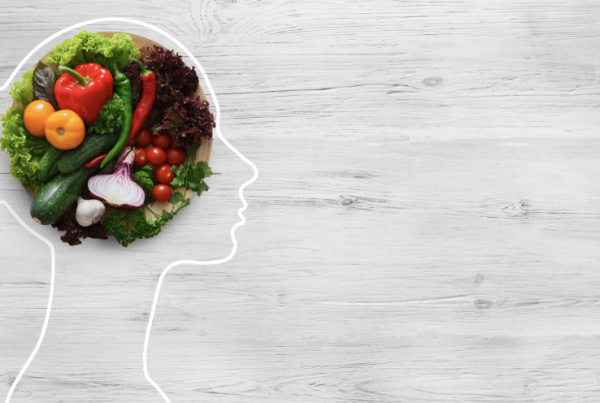With back-to-school season in full effect, young people everywhere are beginning the somewhat daunting journey of navigating new classes, new teachers, and new friendships. Whether it is a preschooler entering a classroom for the first time, a middle schooler trying branch outside of their friend group, a highschooler trying to feel less lonely, a college student finding their footing on a new campus or just anyone else who may be entering a new social environment — creating new friendships can be such a scary thing to do. Putting oneself out there can feel overwhelming, and it can sometimes feel impossible to go outside of your comfort zone. However, the creation and sustenance of meaningful, fulfilling friendships is crucial to good mental health, and its importance cannot be understated.
Within our current post-pandemic society, Americans have increasingly become more isolated from those around them. In 2021, 12% of American adults reported that they do not have any close friends, but in 1990 this number was a mere 3%. The decline in social engagement and bonding began long before the onset of the COVID-19 pandemic, but the number of lonely individuals has certainly continued as time goes on. People put more emphasis on the romantic and familial relationships in their lives, and while this is completely necessary and important, it is also crucial for our mental health to stay connected with their friends in our lives. Letting cherished friendships take a back seat as life becomes complicated and busy may feel like an easy choice, but there are so many benefits to maintaining those bonds. In today’s blog, we will explore the impact of meaningful friendships on people’s mental health, and how to create healthy friendships.
Benefits of Friendships
Everyone knows that it is a necessary part of life to have social connections with the people around us, but why? What is it about making friends that is so imperative to us as humans? Well, some of the obvious answers relate to the objective fact that friends help us feel less lonely. When you spend time talking to a good and trusted friend, you can express your feelings and talk through complex situations that are stressful. They provide relief when the tasks and responsibilities of daily life feel overwhelming. Friends help prevent us from feeling alone, and they provide companionship, advice, and emotional support. In a lot of cases, people feel uncomfortable with being open about their mental health with those in their family, and having friends as another form of social support can be very relieving. Research shows that stable friendships provide us with an improved sense of well-being. For example, a 2020 study showed that individuals with friends and close companions are satisfied with their lives and less likely to deal with depression. Other research shows that friendships can:
- Help protect against mental health issues. Research compiled over 38 studies has shown that high-quality adult friendships are a significant predictor of people’s overall health. Having people who support you socially and emotionally can help protect you from mental health illnesses such as depression and anxiety. On the other hand, an analysis done on a sample of 308,000 people showed that those with little to no friends are 2x more likely to die at a younger age compared to those with meaningful friendships. This risk factor is even more severe than the effects that come along with smoking 20 cigarettes a day! In life, all of us are bound to encounter stressful, worrisome situations. Having even just a couple of close friends that you can lean on for support can go such a long way in protecting us from negative mindsets and outcomes.
- Impact the way we react to stress. A 2007 study demonstrated that having close friendships can actually change the way our bodies respond to stressful situations. For example, when a person talks to a very close friend that they trust, their blood pressure reactivity was found to be lower than when they talked to a friend they do not really know well. Individuals are even more likely to have lower heart rate reactivity when they complete tasks in the presence of a friend rather than when they are working alone. A 2008 study found that people who were with a friend judged a hill to be less steep when compared to those who were by themselves. All in all, having close friends around us proves to provide comfort, whether it is conscious or subconscious.
- Encourages a healthy network of social support. When people have good support systems consisting of strong friendships, there are more opportunities to explore new experiences and stay active. Having a companion makes it feel less daunting to go out of your comfort zone to try a new hobby or visit a new place you never would have on your own. They help us transition between the stages of our lives with less fear and more adjustment. For example, transitions such as college entrance, marriage, having kids, and retirement can all feel less stressful and more rewarding when shared with friends. Research determined that adults with good social bonds have a reduced risk of developing many illnesses such as depression, hypertension, and unhealthy BMIs. When it comes to depression, a person who has the illness may find that they have less symptoms and higher self-esteem when they foster strong friendships. This may be because friendships provide individuals with emotional and practical support. When people have other individuals that they can depend on for love, nurturance, advice, and physical aid, they are able to feel more resilient and able in the face of adversity. Having friends can provide a ‘buffer’ for the more uncomfortable feelings and moments of life, and this can benefit mental health in such a positive way.
Some other benefits of having good friendships include:
- Less feelings of anxiety
- Greater enjoyment and quality of life
- Higher interpersonal happiness
- Adjust to difficult life situations better
- Feel less victimized by other peers
- Increase feelings of warmth and intimacy
- Higher sense of well-being
- Increased participation in social organizations
- Enhance communication skills
- Feel comfort when work or school stressors occur
Psychiatric Effects on Friendships
Although there are numerous benefits to having close friendships, making friends is not always easy to do. Research shows that those with psychiatric disorders may have a harder time at maintaining friendships in childhood and adulthood. For example, individuals who suffer from panic attacks, obsessive-compulsive disorder, borderline personality disorder, and schizophrenia may have issues with maintaining long-term friendships. The same results were found for individuals who were on various psychiatric treatments such as stimulants, antidepressants, antipsychotics and mood stabilizers. A compilation of various studies also showed that childhood friendship circles were weaker and smaller for individuals who reported a medical history of major depression, attention-deficit hyperactivity disorder, or post-traumatic stress disorder. In conclusion, there is numerous data to support the linear relationship between psychiatric illnesses and trouble maintaining strong friendships. Researchers are unsure of how much of an influence mental disorders affect close relationships, but there are social consequences that may accompany some mental health disorders.
How to Maintain Friendships
As we have established, there are so many benefits to maintaining strong friendships in our lives. The emotional and social support that individuals receive from their friends is invaluable, since they are only relationships in our lives that are purely voluntary and not obligatory. For this reason, it may be helpful to focus on maintaining your friendships while they are good; don’t wait for things to deteriorate to put intentional effort in with your friends. Sometimes, people take their friends for granted. One individual may assume that their friends will always be there for them no matter what, but people may drift apart when it feels like they are no longer valued in a friendship. A study in 2004 identified 4 major maintenance behaviors that keep friendships alive. They are supportiveness, positivity, openness, and interaction.
- Supportiveness: Go out of your way to give assurance to your friend and make them feel good about themselves. If you know that a friend of yours is going through a rough patch, shoot them a text to let them know you’re thinking about them or plan a coffee date to meet and catch up. Letting them know you care about the events in their lives provides them with reassurance that you want the friendship to last.
- Positivity: Try to be positive and uplifting when you are with your friends. We all go through stressful times, but it can be draining for people if you speak and act negatively all the time. Say ‘thank you’ when they do something nice for you, respond to their messages, and uplift them when you can.
- Openness: The great part about having a friend is having a person to come to for advice and conversation. Friends are able to share private thoughts with one another and discuss topics that they might not be comfortable sharing with just anyone. Having open conversations can help people feel more comfortable and seen by the other person.
- Interaction: Make an effort to see your friends. Whether it be going to a restaurant together, visiting their apartment, celebrating birthdays, or even FaceTiming one another, making an effort to interact with your friends is important. You want your friends to know you are engaging with their life and care about them.






